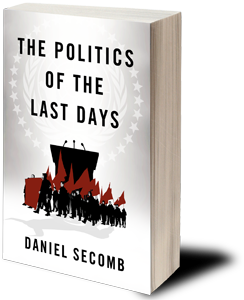Google is one of the largest traffic drivers for news websites and, according to the Columbia Journalist Review, its influence is growing as Facebook’s traffic referrals decline.
“But for all the influence Google has in directing attention, we know painfully little about how its algorithm selects and curates news. Which sites does it direct traffic toward? And how does Google’s news curation impact the diversity of information found?” wrote researcher Nicholas Diakopoulos.
He and fellow researcher Daniel Trielli used the Computational Journalism Lab at Northwestern University to audit the search engine’s “Top Stories” to determine what websites received the most help from Google.
The team ran more than 200 search queries of various news topics in November 2017, such as “Colin Kaepernick,” “earthquake,” tax reform,” and “healthcare gov.” The researchers did everything they could to “minimize the potential for result personalization” and ran their queries each minute over a 24-hour period. The result: 6,302 unique links found in Top Stories. The researchers counted “an article impression each time one of those links appears.” (Emphasis original)
“The data shows that just 20 news sources account for more than half of article impressions. The top 20 percent of sources (136 of 678) accounted for 86 percent of article impressions. And the top three accounted for 23 percent: CNN, The New York Times, and The Washington Post. These statistics underscore the degree of concentration of attention to a relatively narrow slice of news sources,” Diakopoulos found.
Behind the Post, which accounted for 5.6% of the impressions for the top 20 sources, was Fox News, with 3%. Fox was the only outlet on the list that could be considered right-leaning.
“Prior research has shown that search engines can affect users’ attitudes, shape opinions, alter perceptions and reinforce stereotypes, as well as affect how voters come to be informed during elections. As such, media diversity is an important aspect to the way that Google—or any news aggregator—curates sources and perspectives,” Diakopoulos wrote.
It’s difficult to consider the other outlets — especially CNN, the Times, and the Post — as anything other than left-leaning at this point, given their coverage of President Donald Trump’s administration these past two years and their hype of the Russia-collusion hoax.
The researchers then studied the ideological leanings of those who share the content from the sources in the top 20 list. As Diakopoulos wrote, this doesn’t necessarily mean the outlet itself is slanted, but reflects “the self-reported political affiliation of Facebook users sharing content from those sources.”
“Our data shows that 62.4 percent of article impressions were from sources rated by that research as left-leaning, whereas 11.3 percent were from sources rated as right-leaning. 26.3 percent of impressions were from news sources that didn’t have ratings. But even if that last set of unknown impressions happened to be right-leaning, the trend would still be clear: A higher proportion of left-leaning sources appear in Top Stories. (Again this means news sources shared on Facebook more often by people with a left-leaning political affiliation[)],” Diakopoulos wrote.
The researchers also tested the theory that perhaps left-leaning outlets produce more content. They found that was the case, but also that Google’s curation algorithm amplified that skew as well.
One side note to all of this, however, is that the curation may have more to do with the timeliness of the articles. The researchers found that 83.5% of articles in the Top Stories section on Google were less than 24 hours old and 13.1% were less than an hour old.
Source: Daily Wire
 Register your interest for Daniel Secomb's new book, "Politics of the Last Days"
Register your interest for Daniel Secomb's new book, "Politics of the Last Days"
Daniel's new book explores the integral and fascinating role that politics will play in the end times.
He demonstrates that political philosophy is actually underpinned by biblcal principles and that by examining the political history of the past can give us a fascinating glimpse into how Biblical end times events will unfold.
Be sure to sign up with your name and email address to be notified of updates and the upcoming release date of the book.


















